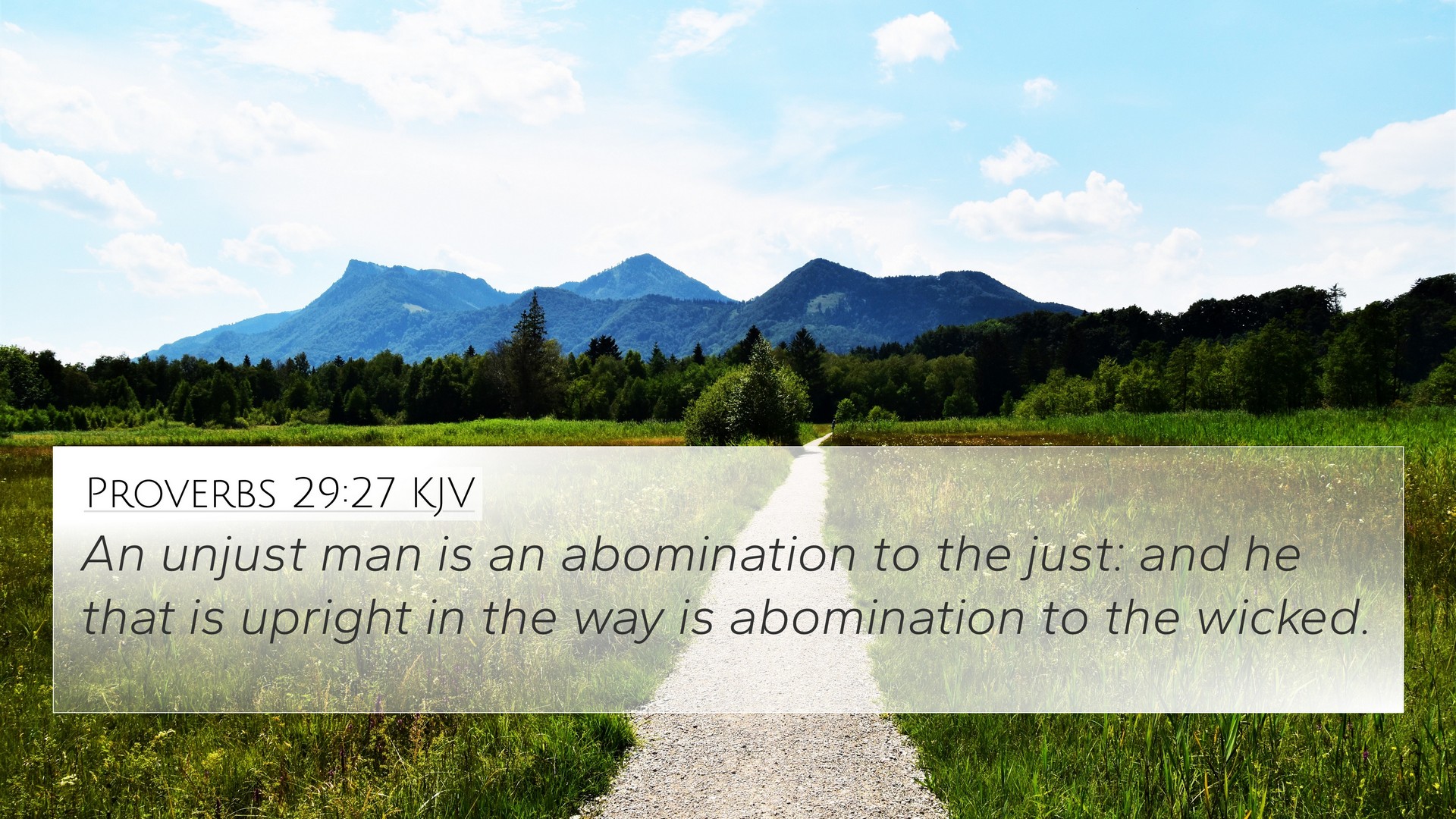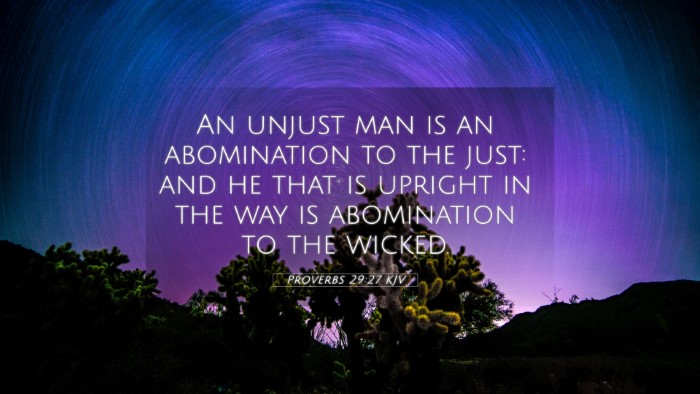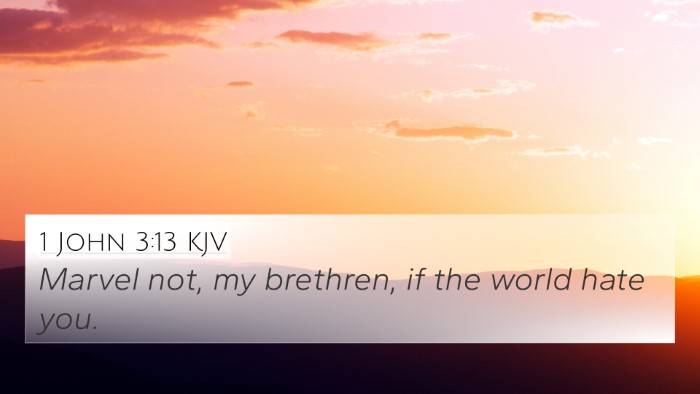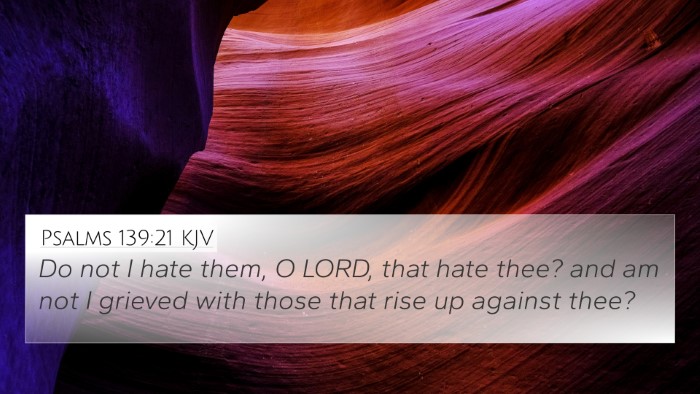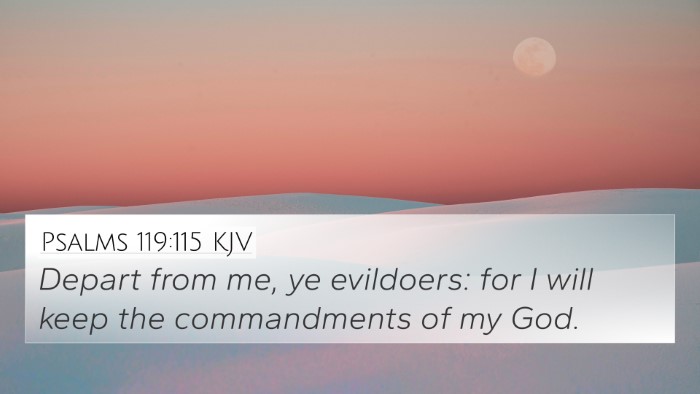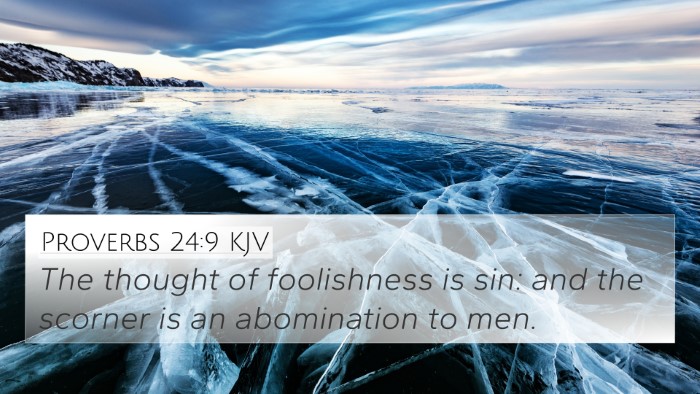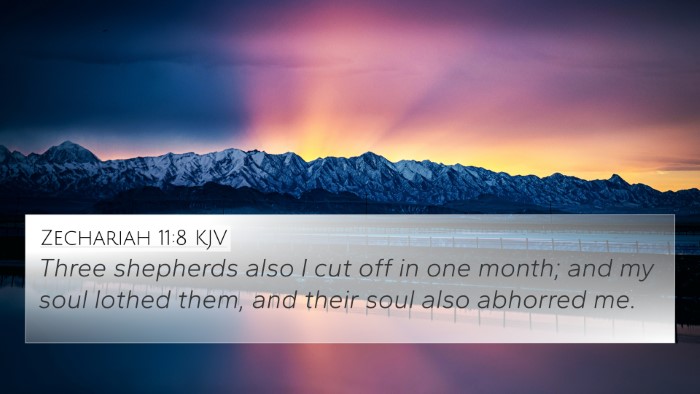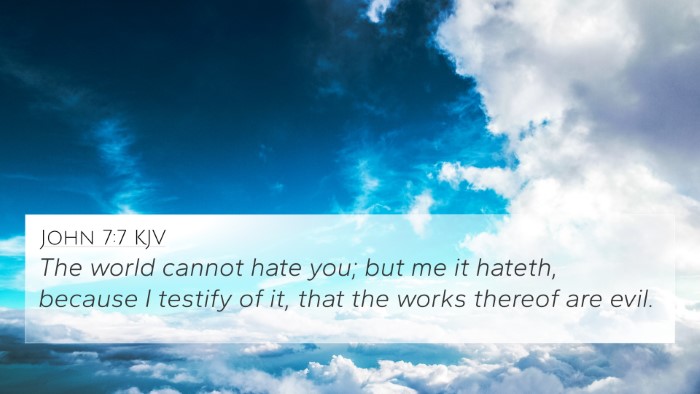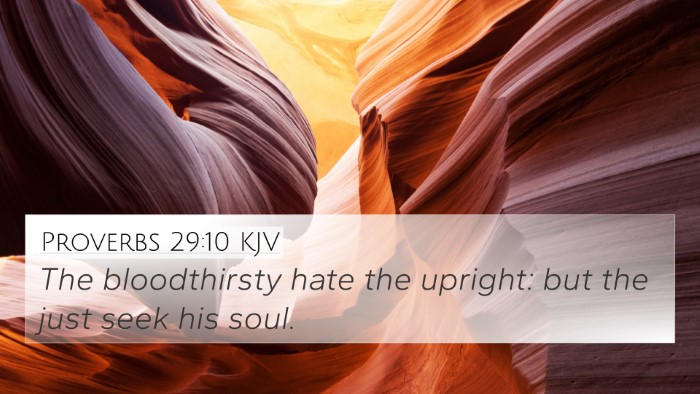Understanding Proverbs 29:27
Proverbs 29:27 states: "An unjust man is an abomination to the just: and he that is upright in the way is abomination to the wicked." This verse encapsulates the stark contrast between the just and the unjust, highlighting the moral dichotomy present in society.
Verse Meaning Summary
This proverb emphasizes the moral conflict between the wicked and the righteous. Those who act justly are detested by those who perpetuate injustice, while the upright are often distrusted by the wicked.
Insights from Commentaries
The following insights from renowned public domain commentaries elucidate the meaning of Proverbs 29:27:
-
Matthew Henry:
Henry notes that the just man, who is righteous in his deeds, finds the behavior of the unjust to be offensive and repugnant. This instills a sense of moral clarity where the actions of the wicked are starkly opposed to those who follow the path of righteousness.
-
Albert Barnes:
Barnes provides an interpretation that illustrates the social consequences of living a just life. He argues that those who pursue justice will naturally find themselves in conflict with those who live unjustly, encapsulating the social tensions that arise from divergent moral standards.
-
Adam Clarke:
Clarke presents the notion that the unjust being an "abomination" speaks to the psychological and spiritual alienation between the just and the unjust. The feeling of revulsion goes both ways, signifying the extent to which moral values can divide communities.
Cross-References for Deeper Understanding
To fully appreciate the depth of Proverbs 29:27, consider these interconnected scriptures that reflect similar themes:
- Psalm 1:1-2 - "Blessed is the man that walketh not in the counsel of the ungodly..." emphasizes the contrast between the righteous and the wicked.
- Proverbs 12:12 - "The wicked desireth the net of evil men: but the root of the righteous yieldeth fruit." Intertwining the motivations of the just vs. the unjust.
- Isaiah 5:20 - "Woe unto them that call evil good, and good evil..." highlights societal confusion over moral values, much like Proverbs 29:27.
- Jeremiah 22:3 - "Thus saith the Lord; Execute ye judgment and righteousness..." reinforces the demand for justice, paralleling the conflict described in Proverbs.
- 2 Corinthians 6:14 - "Be ye not unequally yoked together with unbelievers..." mirrors the principle of avoiding associations with those who act unjustly.
- Galatians 6:7 - "Be not deceived; God is not mocked: for whatsoever a man soweth, that shall he also reap." Draws on the principle of moral accountability.
- James 4:4 - "Ye adulterers and adulteresses, know ye not that the friendship of the world is enmity with God?" emphasizes the enmity between the righteous and unrighteous.
Thematic Connections
Proverbs 29:27 serves as a strong bridge in understanding the larger biblical narrative concerning righteousness and justice. The connections between the verses illustrate a consistent theme: the dichotomy of good versus evil permeates the scriptures:
- Linking Bible scriptures reveals how biblical texts often discuss the nature of human morality and social justice.
- Bible verses that relate to each other can be unearthed through a comparative study, identifying patterns across both the Old and New Testaments.
- Cross-reference Bible study allows for a richer understanding of themes like judgment and morality, fundamental to biblical teachings.
- Identifying connections between Old and New Testament can further illuminate the nature of righteousness as consistent throughout scripture.
Tools for Further Exploration
If you're interested in diving deeper into the connections found in Biblical texts, consider utilizing these resources:
- Bible Concordance - A comprehensive tool for locating themes and verses across scripture.
- Bible Cross-reference Guide - Useful for tracking the relationships between verses.
- Bible Reference Resources - Provide background and context for specific verses.
- Bible Chain References - Set out links between related verses for deeper study.
Conclusion
Understanding Proverbs 29:27 through the lens of reputable commentaries illustrates the moral complexities of human behavior and stands as a reflection of the unyielding principles of justice and righteousness found throughout the Bible. By engaging in a cross-referencing Bible study, believers can further grasp the implications of their faith and the expectations set forth in scripture.
Encouragement for Study
As you explore the Bible's teachings, remember that employing cross-references for sermon preparation or study can enhance your understanding of God's word. Consider how various verses support or challenge one another, creating dialogue across texts, enriching your spiritual insights.
